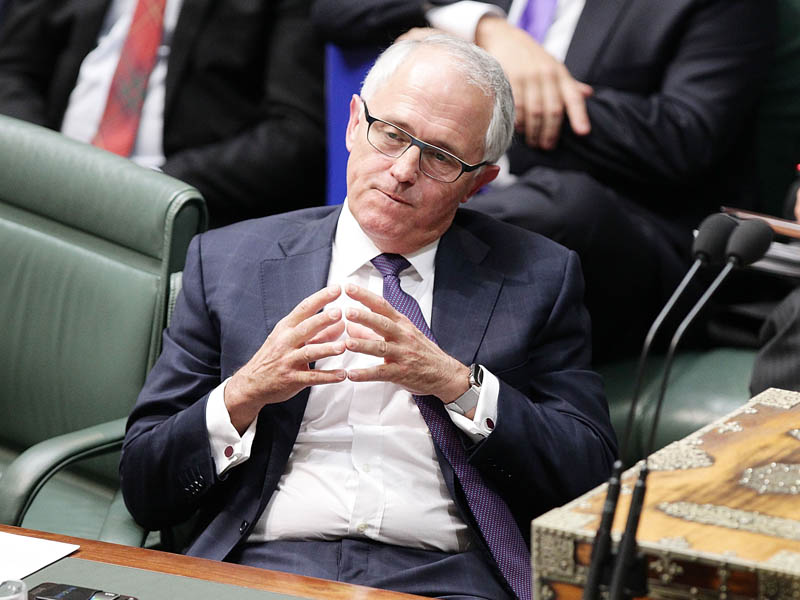In what we now know were the dying days of the Abbott government, the former Prime Minister’s all powerful chief of staff Peta Credlin, was laying plans to try and change the message coming from a government that had crippled the National Broadband Network, not initially named a science minister and all but ignored technology.
It was finally seeping in to Abbott’s office, that its apparent anti-science stance and complete lack of any vision on technology and innovation had left a gaping hole in its narrative about the future of the Australian economy, as the mining boom continued to taper off amid growing fears about the dipping Chinese economy, that takes up about one third of all Australia’s exports.

To remedy this, a visit by Tony Abbott himself, together with a group of Australia technology companies, was planned for San Francisco and nearby Silicon Valley starting around September 25. Amongst the visits on a whistle-stop two day tour (en route to another unrelated appointment in New York City) were Google, Stanford University and Tesla.
InnovationAus.com understands that the tour was planned in secret by the PMO under Mr Abbott, and that then Communications Minister Malcolm Turnbull was not involved in planning and had not been invited to join the delegation.
It is believed that Mr Turnbull’s people – now inside PMO – have said to the invited delegates that the tour can either be postponed until a later date when the new PM can lead them, or continue as planned with the current itineray and another senior government representative will act as host.
Further evidence of the previous government’s belated change of heart was also emerging in the changes that Treasurer Joe Hockey, who will not be in the job after the reshuffle, had begun to insert in his regular stump speech.
Hockey was also beginning to reach out to Australia’s long ignored (at least by the federal government) startup community.
“Today, global disruption is the new black,” Mr Hockey told a small business summit in Sydney on July 17.
“Business models are being turned on their heads and consumers now march to the beat of innovation. Disruptors improve the daily life of consumers, and challenge the conventional role of government. They challenge the way governments regulate industries, issue licences and raise taxes. But more than that, they have the ability to transform the way our economies operate, where jobs are created and how we live our lives. At the heart of all of this is small business. Today’s small business start-ups and entrepreneurs are tomorrow’s global disrupters.”
Too little, too late.
Mr Turnbull began his tech focus in his first appearance in front of the cameras, minutes after ousting Mr Abbott by using works like “disruption”, “technology” and “innovation”.
Mr Turnbull’s office is now working overtime to finalise the structure of the bureaucracy to encompass what insiders have described will be a “hugely lifted focus” on technology and innovation.
In terms of what Mr Turnbull decides to do with a topic he is “passionate about”, insiders said that the appointment of Communications Department Secretary Drew Clarke as his interim chief of staff is central.
Mr Clarke has been charged with wrangling the disparate pieces of what would be… let’s call it the Department of Technology, Innovation and Digital Services (with the handy acronym TIDS for an industry that loves them) – or similarly named portfolio.
At present these sit in the Departments of Communications, Industry and Science, Small Business and Social Services – and there are other bits and pieces across most portfolios because, after all, technology is central to every walk of life these days.
As we move further into this week’s all-consuming hypothetical for the Australian tech sector, the question is whether Mr Turnbull creates a separate TIDS department and if so, does he roll it in under the Communications portfolio where most of it used to sit?
If this is the case, if the present arrangement where Paul Fletcher, the former Optus executive, a Parliamentary Secretary is retained, will a junior Minister be appointed or, as in the case of the Department of Foreign Affairs and Trade, are their two Cabinet Ministers? Or all of the above, many options are under consideration.
Mr Fletcher is widely seen a strong candidate for a Cabinet position and almost certainly a ministry – Communications would be the obvious choice but he’s a capable lawyer and could perhaps take the heat out of the Attorney General’s portfolio which is, in any case, very digitally focused these days.
While the Australian Broadcasting Corporation set tongues in the sector wagging on the morning of September 16 by linking Hockey with Communications, a number of insiders have hosed this down.
Others who could be in the frame for the Comms or Tech portfolio(s) include Senators Simon Birmingham and Mitch Fifield, who deputised for Mr Turnbull. Both are strong Mr Turnbull supporters and earmarked for promotion. But in the way of these things (and the pundit’s classic get out of jail card) is that the balance of politics and experience in shaping a fresh Cabinet can throw up all sorts of interesting choices.
Still, one man who seems almost certain to get a role in the new structure around TIDS is one of the parliament’s youngest members, 25-year old Queensland MP Wyatt Roy.
A close friend and outspoken supporter of Mr Turnbull’s – he was glued to the new PMs side as he walked into the Liberal Party room for his successful leadership challenge. Mr Roy has been one of the go-to people on technology in Canberra in the recent past according to tech industry executives. And Party insiders all acknowledge that he’s certainly in the mix for a promotion in one of the sector’s portfolio(s). And maybe even another trip to Silicon Valley.
Do you know more? Contact James Riley via Email.

